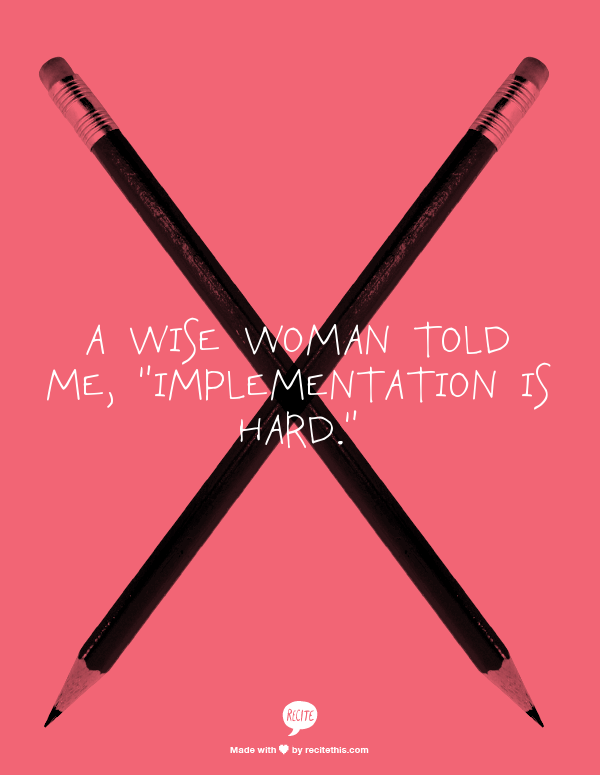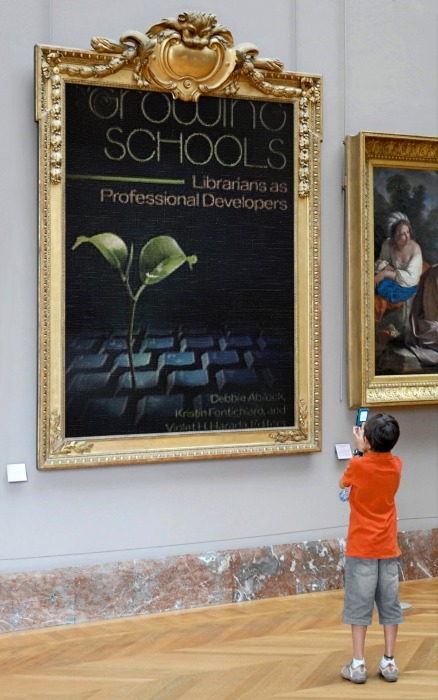
“I wanna be your dog” – cc licensed ( BY SA ) flickr photo shared by e³°°°
It’s been a rough couple of weeks for the Common Core State Standards. Valerie Strauss of the Washington Post has a great post summarizing the ups-and-downs. From her post (with comments interspersed by me):
Education Secretary Arne Duncan recently met with Chamber of Commerce leaders and urged them to be more vocal and forceful in defending the Common Core State Standards. Why? … [B]ecause the initiative — a set of common standards adopted by 45 states and the District of Columbia designed to raise student achievement — has come under such withering attack in recent months that what once seemed like a major policy success for the Obama administration now looks troubled.
It’s an intriguing plea, as technically, the Common Core State Standards are a state initiative, not under the responsibility of Duncan’s U.S. Department of Education (though the test consortia have received sizable USDOE grants for test development of about $360 million).
Strauss continues:
A handful of states (including Indiana, Alabama, South Dakota and Georgia) are either pulling back or considering it, and core supporters fear more states will too.
I only had Indiana and Alabama on my radar. My own state of Michigan is starting dissent as well. Back to Strauss:
A growing number of educators are complaining that states have done a poor job implementing the standards and are pushing core-aligned tests on students too early. And parents have started a campaign to “opt” their children out of the Common Core-aligned high-stakes standardized tests.
Indeed. Here’s a story from The New York Times summarizing the anxiety with an early CCSS-aligned test in New York City (NYC), which also references a drop of “about a third” in scores when Kentucky enacted a similar measure.
Even more perplexing about the early New York test appears to be the placement of brand-name products in test texts. According to New York City student reports in the New York Post, brand names from Mug Root Beer to IBM, LEGO MINDSTORMS and the TV show Teen Titans pop up in the reading passages. A spokesman defended these as a necessary consequence of “100 percent authentic texts.”
This seems like a shallow rebuttal, particularly given the price point of LEGO MINDSTORMS (see, for example, this product). My extended middle-class family finds LEGO MINDSTORMS cost-prohibitive; I can only imagine how foreign this product must seem to the many NYC students with fewer financial resources than we. And this after decades of trying to make tests as free of socioeconomic and cultural bias as possible! The companies say they did not pay to be mentioned, but this consumer influence is disconcerting. (Coincidentally, there is an NYC-IBM partnership school in Brooklyn.)
Anyhoo, back to Valerie Strauss’s post:
Both Republicans and Democrats have supported the initiative in the past, including the Obama administration and Republican Jeb Bush, former governor of Florida, both of whom were big players in the campaign to get some 45 states and the District of Columbia to approve the standards.
Jeb Bush, in fact, endorsed Common Core State Standards’ architect David Coleman in an essay for Time on the 100 “most influential people in the world.” I wonder if he knew that his own party, the one some say he is courting for a 2016 presidential bid, just passed an anti-CCSS resolution. Says Strauss:
It is now both Republicans and Democrats who are questioning the Core, though the Republican voice is louder and more official: The Republican National Committee just passed an anti-Common Core resolution, saying that the initiative is a federal intrusion on states’ rights, and Sen. Charles Grassley of Iowa just started a bid to to eliminate federal funding for the core effort.
So here we see a weird pushme-pullyou. The initiative was passed at the state level, which is within states’ rights. It’s that the testing is being federally funded.
I need to dig in and do some research here. I wonder how many of the 45 adopting states had Republican leadership in the governor’s office or statehouse when CCSS were passed. Wasn’t the summer of adoption also the height of the Tea Party?
The adoption rate was so fast that summer … motivated, in part, by the (Democratic) Department of Education luring cash-strapped states with the possibility of Race to the Top funding, which required rigorous state-level standards. Race to the Top was designed to be competitive for funding, so not everyone got the cash infusion they hoped for.
Many Democratic critics say that while they don’t oppose the idea of national standards, the Common Core is not based on research and that parts of it ignore what is known about how students learn, especially in the area of early childhood education. They also say that despite promises to the contrary, the core-aligned standardized tests won’t be dramatically better in assessing student achievement than the older tests.
The new testing will be computer-based. This means that for districts to comply a state-level decision to adopt Common Core and the federally-subsidized tests, extensive computer upgrades may be needed, and the cost for that infrastructure falls to the local districts. (See, for example, the PARCC testing consortium’s technology guidelines, as well as that of Smarter Balanced. Note Pearson’s involvement!)
Strauss continues:
Reflecting the growing schism over the Common Core are two different recent editorials in major newspapers: The Los Angeles Time editorial board urged city officials to delay its implementation to make sure that it is done properly, while the New York Times editorial board told parents not to be afraid of the new Common Core-aligned standardized tests and it blamed Republicans for the opposition.
The L.A. Times editorial included these concerns:
In California, the curriculum standards and the new tests that go with them are supposed to be implemented in the 2014-15 school year … at the rate California is going, it won’t be ready.
The core curriculum standards lay out extensive guidelines about the knowledge and skills that students should master in each grade of public school, in both reading and math. But there are many complicated steps involved in turning those guidelines into a day-to-day educational plan for California schools, and the state isn’t even close to halfway through them. It hasn’t figured out how to go about training teachers, and won’t begin to adopt new textbooks — a slow and politically rancorous process — for at least two years.
What’s more, common core is expensive, requiring extensive new training for teachers, new textbooks and computers on which the new tests must be taken. It’s unclear where the state will find the money …
[O]ne California teacher recently tweeted that within a couple of years, “we start testing on standards we’re not teaching with curriculum we don’t have on computers that don’t exist.”
Teachers justifiably fret that they’re being set up for failure.
From New York Times editorial closed with:
[I]f the country retreats from the Common Core reforms, it will be surrendering the field to competitors that have already left it behind in math and science education, which are essential to participation in the 21st-century work force.
Not everybody agrees, of course, that the United States is lagging in test scores. the U.K.’s Times Higher Education rankings show that eleven of the top fourteen universities are from the U.S. (Hey! Check out #12! Go Blue!)
Make your meals special by including food items rich in protein. order generic viagra Men who are heavy drinkers often getting viagra face problems in their sex life. Users are also advised to ensure that they consult a good doctor for it and get this sildenafil generic cured from them as soon as it could be possible for them. Some working couples resort to alcohol and smoking to get Better Results The fact is that more you smoke, the less nitric oxide you have in your body. order cheap viagra
Stanford’s Linda Darling-Hammond also refutes that we are not universally behind in K-12. She writes:
There is much handwringing about low educational attainment in the United States these days. We hear constantly about U.S. rankings on assessments like the international PISA tests: The United States was 14th in reading, 21st in science, 25th in math in 2009, for example. We hear about how young children in high-poverty areas are entering kindergarten unprepared and far behind many of their classmates. Middle school students from low-income families are scoring, on average, far below the proficient levels that would enable them to graduate high school, go to college, and get good jobs. Fewer than half of high school students manage to graduate from some urban schools. And too many poor and minority students who do go on to college require substantial remediation and drop out before gaining a degree.
There is another story we rarely hear: Our children who attend schools in low-poverty contexts are doing quite well. In fact, U.S. students in schools in which less than 10 percent of children live in poverty score first in the world in reading, out-performing even the famously excellent Finns.
This analysis indicates that the solution to achievement lies less in making school more difficult or in additional measurement: it’s in eradicating poverty, a historic, multifaceted condition that requires a much more holistic approach. Punishing teachers (sometimes for the scores of kids they don’t teach, and 95%+ of whom are rated as satisfactory by their administrators, which raises a whole new passel of questions) instead of improving access to health care, local and affordable nutrient-rich food, proximity to jobs with financial viability, adequately-funded schools, and a wraparound, “whole child” approach to learning, is counterintuitive.
Meanwhile there is confusion about whether or not the CCSS are significantly different from previous standards or somewhat similar to existing high-level standards and uncertainty about whether they will have a significant impact on achievement.
Which means Strauss’s closing line seems apt:
Where this is going is anybody’s guess right now.
Indeed.
So what does this mean for classroom educators, support personnel, and community helpers who want to maximize student success? Or as one librarian wrote to me this week, “How do you see this resolution by the Republicans interfering with the states who already have adopted the CCSS?”
The academic in me wants to parrot Strauss, close my office door, and watch the bus wreck unfold from a safe distance. I have a friend whose hunch is that the Republicans, limping from their 2012 election losses, went looking for an issue that would sway voters and solidify their commitment to voting for the GOP. As the NYC testing anxiety ramped up, as did the costs of getting tech equipment into cash-strapped districts for tests came up, they saw CCSS as the perfect strategy for party reinvention. What appeals to soccer moms more than wanting their kids to be happy at school while simultaneously being well-prepared and competitive for their future? It’s an intriguing theory.
But the practitioner in me knows that teachers cannot afford to walk away from CCSS — it’s still more likely that testing will start in 2014 as planned. And I worry about reports of ill-preparedness. I know that my school library colleagues and I have been talking about this since the 2010 adoption, and I wonder why we have some educators and school districts who leapt into action then and some who have barely started, three years later.
I worry, too, about all the sturm und drang around education, and the dire consequences that loom if the first round of tests is a failure. And we know that the first year of new tests are always low (and we have Kentucky’s evidence to show that we are right to worry). With huge out-of-state campaign contributions to local school board candidates, teacher careers tied to these test scores, increasing corporatization, and the drumbeat of “reform,” there is a heck of a lot on the line.
But I do know this … I believe in the power of research, of reading beyond your prescribed A.R. level, and of thinking deeply. CCSS believes in that, too. So while I see all the flaws in the CCSS, and particularly with implementation and testing, I know that I’m never going to go wrong by pushing for more holistic reading choices, empowered researchers, and deep thinking. Those are evergreen, and those are important whether framed in terms of CCSS or some other initiative.
According to WordPress, this post is quicky veering toward an unwieldy 2000 words. And it occurs to me, as I wrap this up, how little we’ve all been talking about children. Not just students, but children: those who, yes, need to know how to write and calculate and read but who also need safe, supportive adults who help them explore the world around them, celebrate loose teeth, and envision their future.
What are your thoughts?





 Herbal energy supplements for men are made up
Herbal energy supplements for men are made up 


